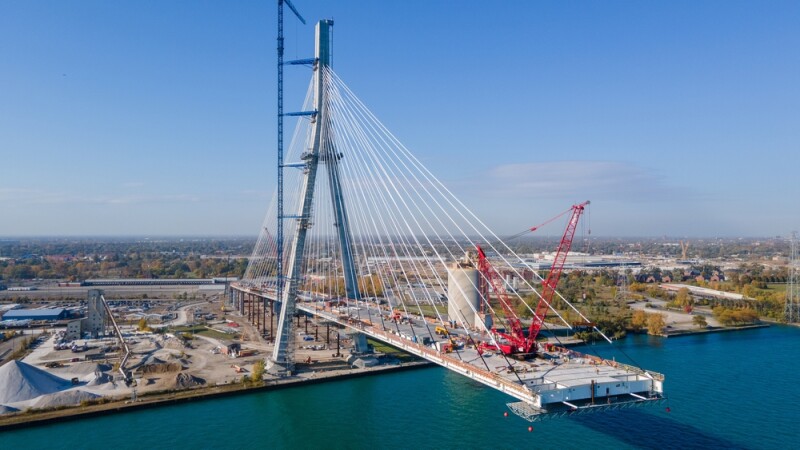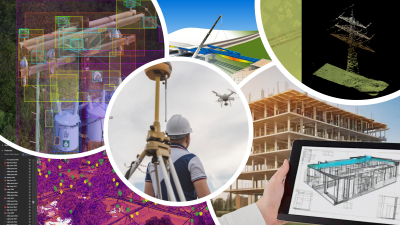In recent years, advanced technologies such as AI, drones, digital twins, and cloud-based environments have taken on increasingly important roles in infrastructure operations. Inspections, renovations, and even full construction projects have come to rely on a host of new systems to make work faster, safer, and cheaper.
Given the widespread adoption of advanced technologies, it’s critical that infrastructure owners, firm managers, and other professionals stay on top of the latest advances and have the information they need to adapt to rapid change in the industry. To help, Geo Week News recently hosted a webinar, Amplifying Infrastructure Teams with Advanced Tech.
Moderated by Geo Week News Content Specialist Matt Collins, the event featured insights from Carlos Femmer, HDR’s Director - Data Acquisition; Kourosh Langari, Project Engineer/BIM Manager for the California Department of Transportation; and Langan’s Sr. Survey Project Manager, Russell Hall.
Drawing on their many years of experience in the field, the panelists engaged in a wide-ranging discussion that touched on the importance of training and change management to address workforce shortages, the need for continuous innovation, and how developing close relationships with technology vendors can help maximize efficiency and accuracy. In addition, the discussion included a look at important technologies such as ground-based laser scanning, reality capture, and AI-driven feature extraction.
Langari said that responding to constant changes in technology represents a real challenge for the infrastructure industry. The sector, he said, “is being disrupted by all the new technology, so, we're really in a perfect storm here. We’re moving from analog project delivery to digital construction, and in order to do that, you need to bring all components of this sector along with you. It's not just the owner and operator and the designers and the consultants, but it's also the contractor community. It's also contract management, the lawyers, the board of registration. So, so there's a number of pieces.”
Femmer expanded on the challenges of moving to digital construction. “Digital delivery is going to be critical,” he said, but moving toward this new approach has been somewhat painful because “various states have different requirements.”
To address this issue, Femmer said that his firm is working with stated DOTs and other agencies on new standards and requirements. Setting new rules, he said, will aid firms in bringing in new technology, like drones, AI, and mobile lidar. “Being able to adopt multiple technologies, fuse it all together, quantify it and validate it, and then be able to leverage that for a variety of things,” Femmer will be the crucial result of these efforts to standardize rules.
The panel also addressed another challenge around the adoption of new technologies—justifying the investment. Hall explained how infrastructure professionals could use metrics like net revenue multiplier (NRM) to quantify productivity increases. In addition, he said that individuals should try new uses for technology and demonstrate how systems can be effectively adapted to other operations.
“I try to see how many solutions it can solve,” Hall said, and he encouraged infrastructure professionals to “try to get as much value out of the product and find new ways to use it that maybe ways that other people haven't even thought of, including the hardware manufacturer.”
Other topics addressed during the webinar included the importance of balancing operational demands with proactive training, cybersecurity, and the creation of cohesive digital environments.






